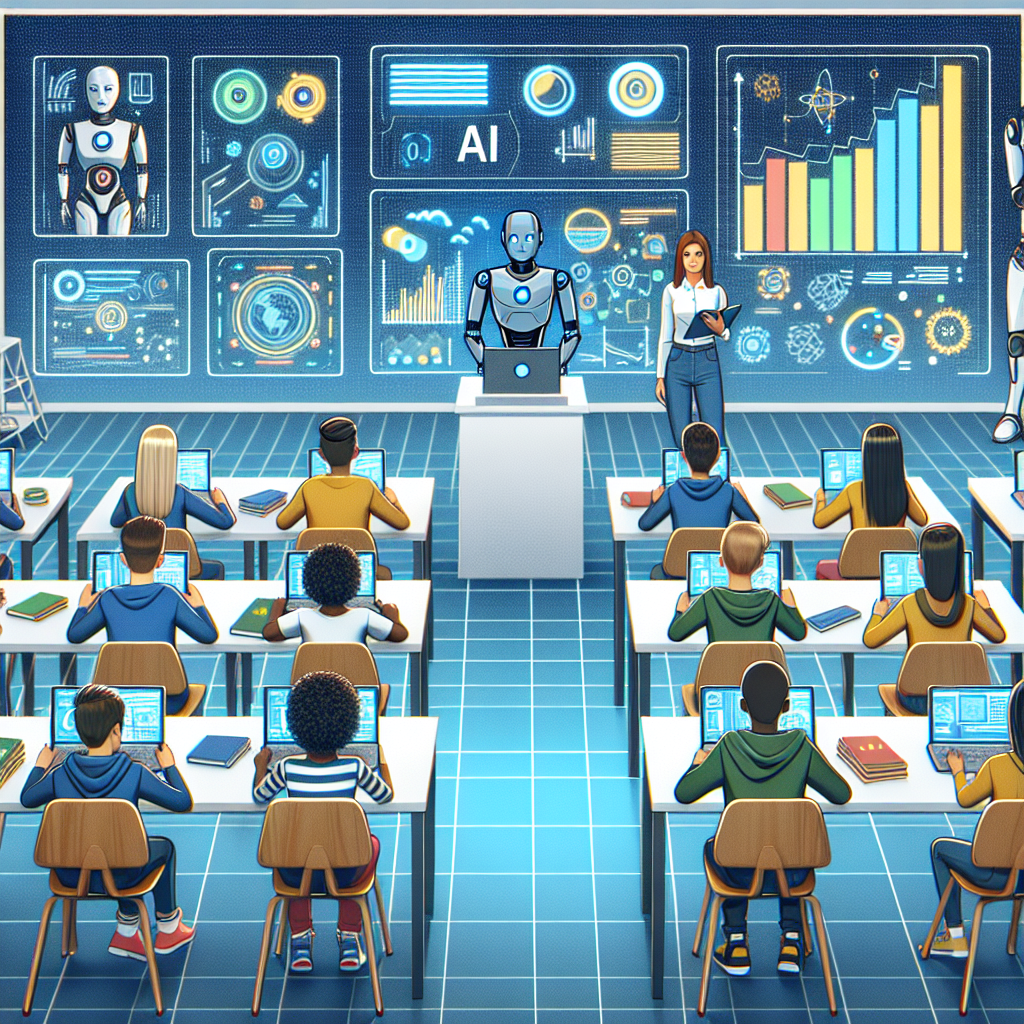The emergence of artificial intelligence (AI) has initiated a transformation across numerous sectors, with education being one of the most affected. As we enter a time where technology seamlessly integrates into our everyday lives, AI is becoming an invaluable ally in the educational realm. From tailored learning experiences to streamlined administrative tasks, AI is fundamentally altering how students learn, teachers teach, and institutions function.
Tailored Learning Experiences
One of the most notable ways AI is revolutionizing education is through tailored learning experiences. Traditional classrooms often adopt a “one size fits all” model, but AI can customize educational pathways to suit the needs of individual students. Algorithms assess student performance data, learning preferences, and styles, enabling educators to create personalized lesson plans.
For example, platforms like Khan Academy and DreamBox adjust in real-time, offering resources and assessments based on each student’s performance. This level of customization ensures that students receive assistance precisely when needed, whether they’re grappling with a concept or progressing quickly.
Smart Tutoring Systems
AI-driven tutoring systems are another breakthrough. These systems offer immediate feedback and support, aiding students in comprehending complex subjects beyond the classroom.
Applications such as Socratic and IBM Watson Tutor empower students to pose questions and obtain instant responses, fostering a more interactive and engaging learning environment. By providing additional resources tailored to a student’s understanding, these tools assist in closing knowledge gaps and promoting self-directed learning.
Improved Teacher Support
While AI is frequently linked to student-oriented applications, it also plays a crucial role in supporting educators. By automating administrative duties like grading and attendance tracking, teachers can focus more on instruction and student interaction.
AI-powered analytics can pinpoint students who may require extra support, allowing teachers to intervene proactively. This data-informed approach can significantly enhance teaching strategies and improve the classroom environment.
Virtual and Augmented Reality
The combination of AI with virtual and augmented reality (VR and AR) provides immersive learning experiences that boost understanding and retention. Students can explore historical sites, witness scientific phenomena, or engage in virtual labs that would be impossible in traditional classrooms.
For instance, AI-enabled platforms like Google Expeditions allow students to embark on virtual field trips around the globe, enriching their learning experiences in ways that were once inconceivable. This hands-on engagement can enhance theoretical knowledge, making lessons much more captivating.
Overcoming Language Barriers
AI is also making significant strides in language acquisition. Tools like Duolingo utilize machine learning algorithms to adjust lessons based on user progress and challenges. Additionally, real-time translation facilitates communication in multilingual classrooms, helping to reduce language obstacles in learning.
Preparing for Future Careers
AI is not merely transforming education; it is also preparing students for careers in a technology-centric world. By integrating AI-oriented curricula, institutions ensure that learners acquire essential skills relevant to contemporary workplaces. Programs focused on AI and machine learning drive innovation and creativity, encouraging students to explore new technologies and their applications.
Ethical Considerations
As with any technological advancement, the rise of AI in education introduces ethical dilemmas, including data privacy, algorithmic bias, and the digital divide. It is crucial for educators and policymakers to tackle these challenges to ensure equitable access to AI resources and safeguard student data.
Conclusion
The integration of AI into education marks a paradigm shift with the potential to enrich learning experiences, enhance teaching methods, and equip students for future challenges. While this journey is just beginning, the possibilities are immensely promising. As educators and learners embrace this transformation, the future promises more informed, engaged, and empowered students, leading to a brighter tomorrow. The future is already here, and with AI guiding the way, education is poised to become more personalized, efficient, and inclusive than ever before.

